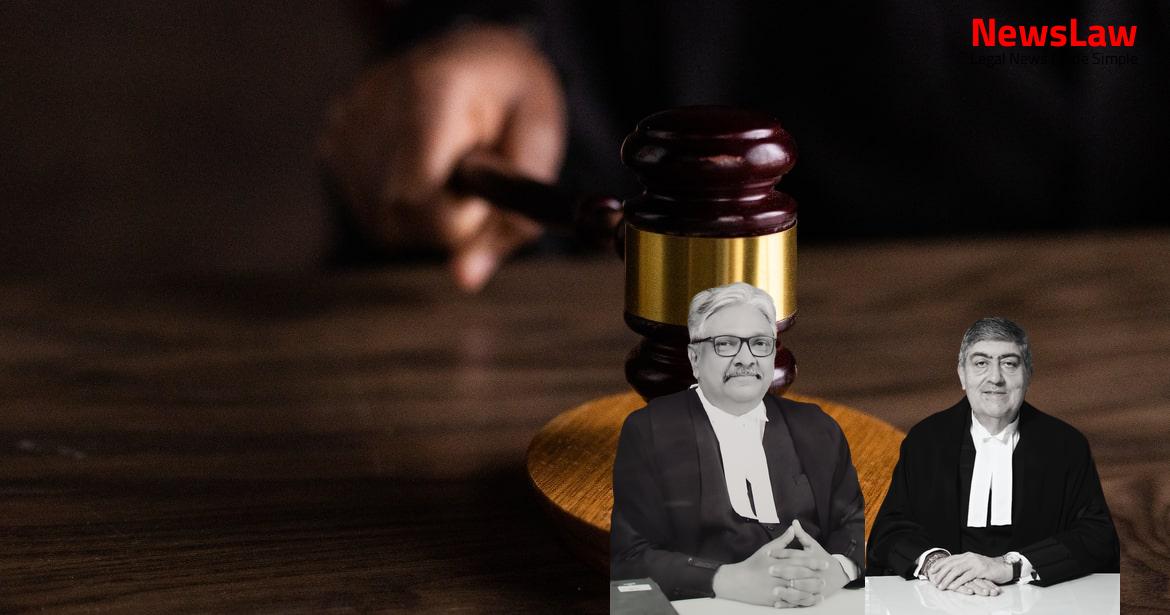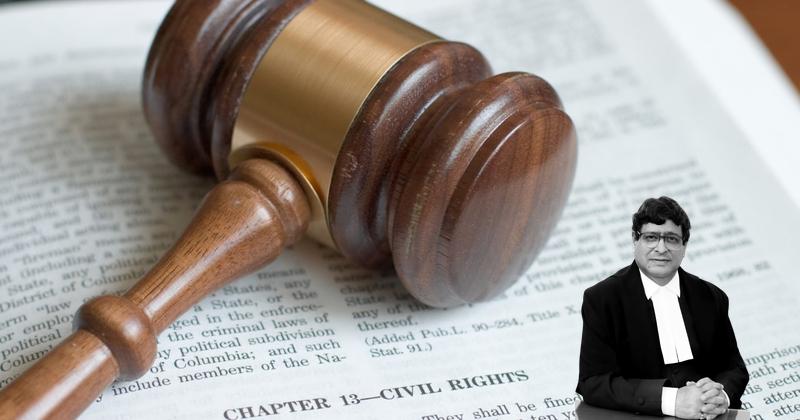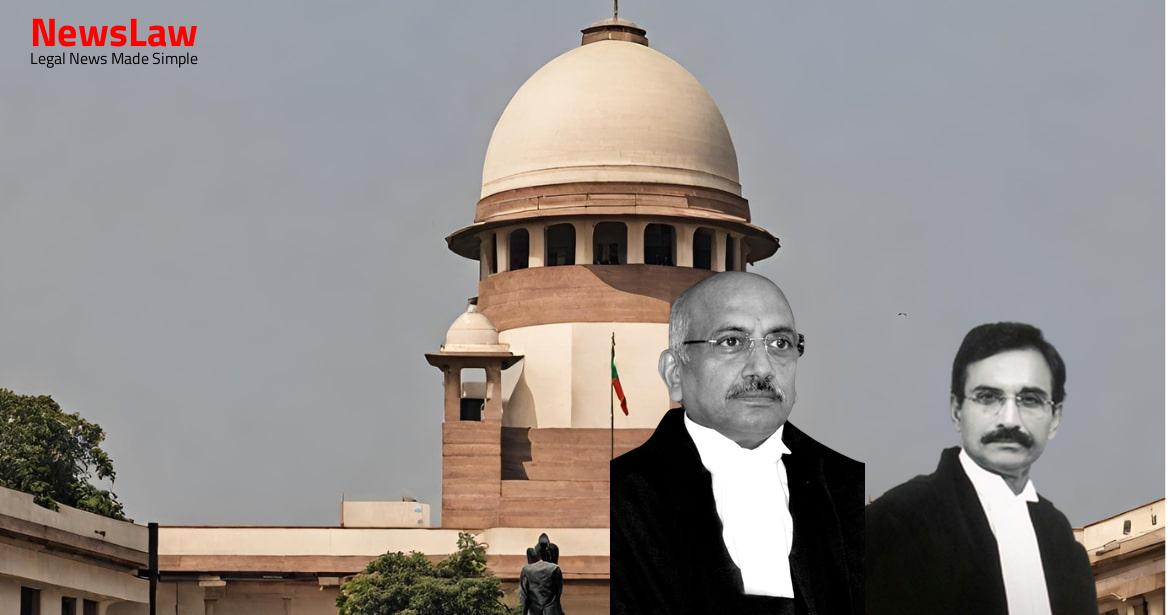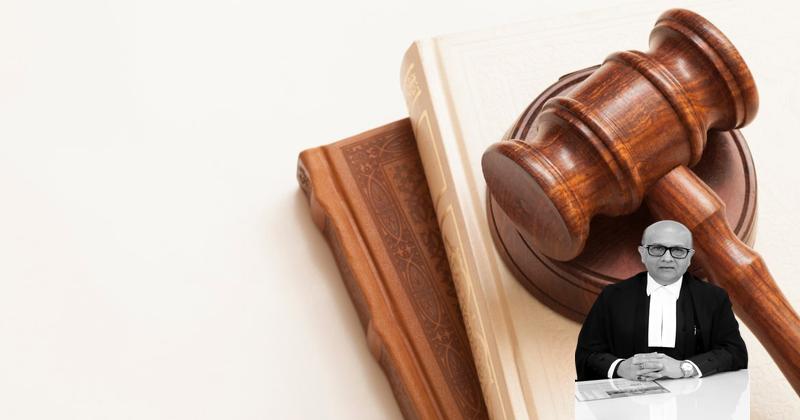In a significant legal ruling, the Supreme Court of India has revisited the case of a dowry death, ultimately leading to the reversal of the conviction. The judgment highlights the importance of evidence and fair trial proceedings. Justice is upheld as the appellants are acquitted in this landmark decision.
Facts
- The daughter-in-law committed suicide by burning herself on 05.06.1991 due to not agreeing.
- Charge-sheet filed against the accused after complying with formalities.
- Appellant in Criminal Appeal No 1475 of 2009 is the first accused and in Criminal Appeal No 1476 of 2009 is the second accused, charged under Sections 306 read with Section 34 and Section 304B read with Section 34 of the IPC.
- First accused is the son of the second accused.
- Prosecution alleges cruelty towards the wife for dowry demand by both accused, with the second accused also wanting to fulfill his lust with his daughter-in-law.
- Nine witnesses and 17 documents produced by the prosecution.
- Appellants convicted under Section 304B read with Section 34 of the IPC for torturing and beating the victim.
- The appeal made against the acquittal of the appellants was allowed by the High Court.
- Certain letters were particularly relied upon in reaching this decision.
- The High Court found that the offence under Section 306 read with Section 34 of the IPC was not proved against the appellants.
- The Trial Court, on the other hand, concluded that the prosecution failed to establish the case against both the accused.
- As a result, the appellants were acquitted of the charges brought against them.
- The appellants received a sentence of seven years of rigorous imprisonment.
Also Read: Supreme Court Judgment on Single Till Mechanism for HRAB Calculation: A Comprehensive Analysis
Arguments
- Contradictions emerged from the previous statements of prosecution witnesses under Section 161 of the Cr.PC.
- Testimonies of the prosecution witnesses, relied upon by the High Court, demonstrated unreliability due to improvements in their versions while giving evidence.
- The High Court reversed the acquittal verdict and convicted the appellants, disregarding the unreliability of the prosecution witnesses.
- It is argued that no case is made out under Section 304B read with Section 34 of the IPC.
- Learned counsel for the State supported the judgment, citing evidence justifying the conviction.
- Reference was made to certain letters in support of the case.
Analysis
- The High Court erred in considering harassment related to dowry mentioned in letters written by the deceased which were not produced.
- The witness, including the deceased’s father and mother, provided contradictory statements.
- The High Court did not adequately consider the contradictions in the evidence provided by witnesses.
- The absence of specific details about dowry harassment in the letters sent by the deceased’s father raises doubts about the prosecution’s case.
- The High Court should have resolved the issue of dowry harassment based on the content of the actual letters sent, rather than assumptions.
- The appellate court has the authority to reappraise evidence in appeals, especially in cases of acquittal.
- It is crucial for the court to evaluate evidence from multiple angles in criminal trials.
- The High Court failed to give weight to the lack of concrete evidence of dowry harassment in the case.
- Contradictions in witness statements and inconsistencies in the prosecution’s case raise doubts about the validity of the charges.
- Appellate courts must closely examine cross-examinations and analyze all evidence before reaching a decision.
- Benefit of doubt must go to the accused
- If there are two views, the one favoring the accused should be taken
- Interference in an appeal against acquittal should be rare, limited to cases where the Trial Court’s judgment was perverse
- The term ‘perverse’ in legal context means ‘against the weight of evidence’
- Appellate Court should not interfere with the verdict of acquittal if the Trial Court’s view is plausible and based on evidence
- Section 304B of the IPC pertains to dowry death cases
- Verdict of acquittal should not be interfered with solely based on a different plausible view of evidence
- High Court can reassess evidence and conclusions of the Trial Court
- Section 304B of The Indian Penal Code deals with dowry death and specifies the necessary elements for it to apply.
- The death of a woman (the wife) within 7 years of marriage must occur, caused by burns or bodily injury.
- Cruelty or harassment for or in connection with a demand for dowry by the husband or relative of the husband must be established.
- In case of such cruelty or harassment before her death, the husband or relative shall be deemed to have caused her death.
- The death must not occur under normal circumstances for it to be considered a dowry death.
- Section 113B of The Indian Evidence Act, 1872 provides for the presumption as to dowry death upon showing cruelty or harassment for dowry demand.
- The High Court’s finding of guilt in an appeal against acquittal by the Trial Court is not acceptable based on the state of the evidence.
- The Trial Court’s view, considering the evidence, was a possible one and did not warrant interference by the Appellate Court.
- The High Court exceeded its limits in dealing with an appeal against acquittal.
- The judgment of the High Court convicting the appellants for the offence under Section 304B read with Section 34 of the IPC is set aside.
- The judgment of the Trial Court is restored.
Also Read: Selection and Appointment of Judicial Officers in Himachal Pradesh
Decision
- The appellants have been released on bail during the course of the appeals.
- As they have been released on bail, there is no need for them to surrender.
- The bail bonds of the appellants stand discharged.
Case Title: GIRISH SINGH Vs. STATE OF UTTARAKHAND
Case Number: Crl.A. No.-001475-001475 / 2009



